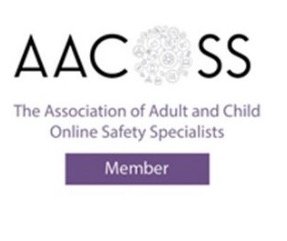Article
Echo chambers & disagreements
What is an echo chamber?
The term echo chamber describes a space online or off where all we hear or read is views like ours. Our own views are echoed back to us so much that we cannot imagine any other way of thinking.
When you’re with your friends, you might disagree about some little things, but mostly you share the same views on bigger issues. You might find that being with your friends makes these views stronger. If everyone around you echoes your views on life, none of you may ever meet someone who thinks differently.
Online, these echoing voices grow even louder as groups of people who hold the same views chat in forums and comment sections, they like and re-share. They join together to drown out people who have different views.
Why does it matter?
You might think, well, does it matter? We all agree. That can’t be bad. But echo chambers can change how we see the world and make it harder to understand or even consider other points of view let alone those that are opposed to ours.
It can mean fewer people discuss ideas, hear other points of view, or learn by listening or reading and especially – thinking.
Our attention spans are short and many people just go with what they see first. Algorithms limit our choices by serving up more of what we have looked at before.
Echo chambers can strengthen existing opinions, of group members and because they are never challenged, push the whole group to a more extreme position.
Some views play on our fears and spread like a contagion.

Watch this short video by GCF Global on Youtube
What can we do?
Teach young people to be critical thinkers. Check what is true, get informed and make informed choices.
What happens when we disagree?
By getting into respectful discussions, we can really form our own opinions. Once we’ve heard other people’s ideas, we can sort out what we really think, rather than echo other people without challenging any ideas.
Before you shout someone down, or comment rudely on their feed, take a moment to think-
- Do they have a point?
- Have I based my opinion on real facts?
- Even if I disagree, they have a right to their views.
- Could I find out more about this from a reliable source?
- Is this person taking this view because underneath somethingg scares them?
- Is there a way to firmly disagree without being offensive?
If you are going to disagree:
- Don't make it personal. ...
- Avoid putting down the other person's ideas and beliefs. ...
- Don’t use statements starting with ‘You...’ such as: ‘you are wrong’ or ‘you always...’Do
- Listen to the other point of view. ...
- Use "I" statements to communicate how you feel, what you think, and what you want or need. ...
- Try to stay calm!
Some ways to disagree are:
Softening your language - ‘I’m not sure I agree with you on this.’
Apologise - ‘I’m sorry but I have to disagree with you.’
Offer another idea - ‘I would suggest...’
End on a positive note - ‘We’ll just have to agree to disagree.’
Other sentences to try when you do not agree:
‘I see your point, but I don’t agree’
I hear what you’re saying, but...’
‘I understand where you’re coming from, but...’
‘That’s a good point, only...’
‘We are all entitled to your views’
‘Yes, I see. You are very worried about this. I don’t see it in quite that way.’
‘I can tell this is bothering you. But is it really like that?’ ‘It’s clear that you feel very strongly about this.’
‘I wonder if you could look at it from this point of view for a moment?’
You might find these useful
A consortium to support fostering in a digital age








